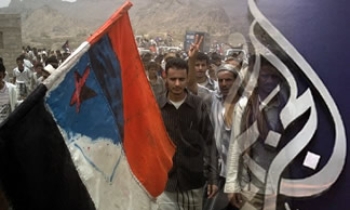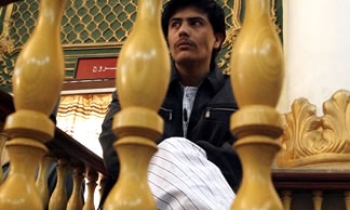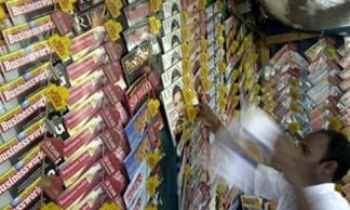The Ministry of Defence has formally stated for the first time that the British military will never deliberately target journalists in conflict zones, but admits that mistakes do happen.
After mounting pressure as the media death toll in Iraq climbs, the MoD has officially recognised the issue of safety for journalists.
The MoD's "green book", which outlines arrangements with the media, now contains a chapter on journalists' safety.
Addressing the protection of journalists who are not embedded with troops, the new edition of the green book says that reporters should be free to move around conflict zones.
However, it adds that the British military has no obligation to protect journalists other than those set out in the Geneva convention.
"The MoD recognises that correspondents are free to look for information in the area of operations and to communicate it back to the public," states the book, written for the guidance of military personnel and the news media.
And it pledges that "UK forces on operations will never deliberately target either individual correspondents or civil media facilities".
"The MoD recognises and understands the concerns of correspondents working in operational areas and other hostile environments regarding their own safety and protection."
However, there are several caveats attached. The MoD said that, although UK forces will not target journalists, media representatives must recognise that war creates extremely hazardous environments and mistakes "resulting from misidentification, weapon systems failure or mal-location" may result.
The book also points out that the recognition that reporters are free to report in the battle area does not imply any specific obligation by UK forces to protect individuals or installations, beyond their obligations to civilians as set out in the Geneva convention. It stresses that reporters who operate independently of the military, rather than being embedded with British units, do so at their own risk.
New MoD guidelines on the targeting of media staff comes in the wake of the controversy about the alleged plan by George Bush to bomb Arabic news channel al-Jazeera's headquarters in Qatar.
The new entries in the green book also follow lobbying from the International News Safety Institute, which promotes the provision of safety training and assistance to media workers.
INSI has led calls from news organisations including the BBC, ITN, Sky News, Reuters, APTN, CNN, NBC, ABC, CBS and the Guardian newspaper for safety guidelines for journalists to be formally acknowledged.
The war in Iraq has claimed the lives of 104 journalists and support staff in 23 months - the bloodiest conflict for the news media in modern times. When the MoD started working on an update of the green book two years ago, INSI and the News Security Group submitted a list of suggestions aimed at improving news media safety.
"We did not get everything we wanted, but basic recognition of the issue of journalist safety in war and of the freedom of movement of journalists in the battle space was key for us," said INSI director Rodney Pinder.
"I believe this is the first time a major military power has inscribed in its bible of media-military operations important procedures to help make war coverage safer for journalists ... We would like to see other militaries follow this lead."
The MoD urges that correspondents should be thoroughly trained in preparation for war coverage.
"Too often, correspondents' lives are placed in danger through their own lack of understanding or knowledge," the green book says. Last week, INSI pleaded with journalists in Iraq not to arm themselves in the wake of the murder of al-Arabiya news journalist Atwar Bahjat and two of her colleagues.
Following the killing of Bahjat, al-Arabiya's Iraq correspondent, cameraman Khalid Mahmoud and technician Adnan Khairullah, a reporter asked Iraqi president Jalal Talabani to allow journalists to carry weapons in self-defence.
"Send me an official request and I will approve it and inform concerned agencies to give you the right to carry arms," Mr Talabani replied.
But INSI said it believed the move would be counter-productive and that journalists' lives would be placed further in danger if they carried weapons.









